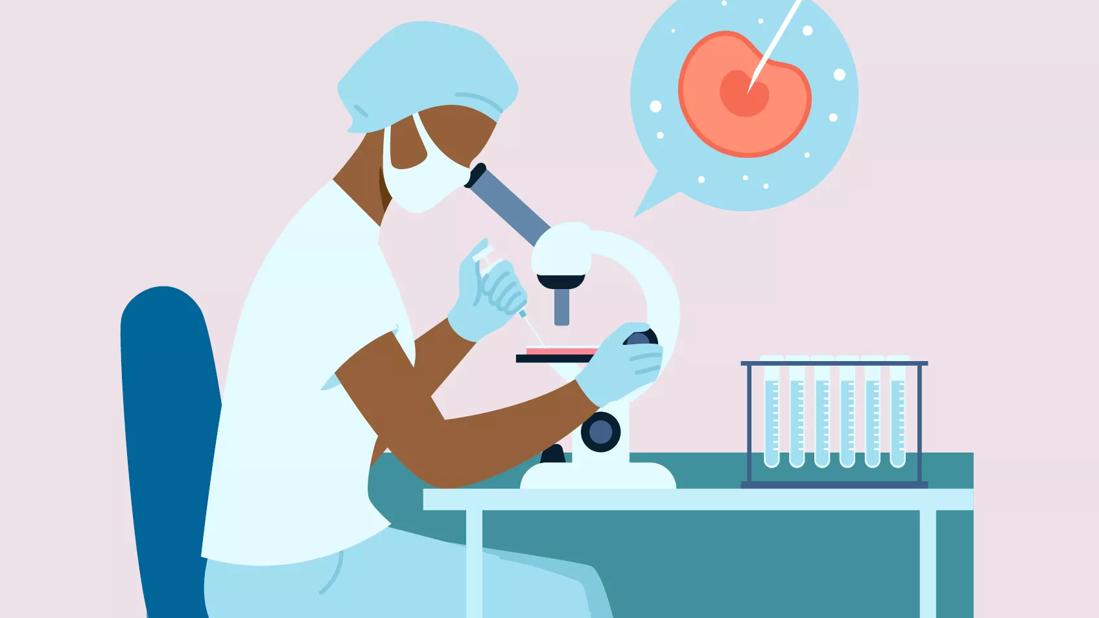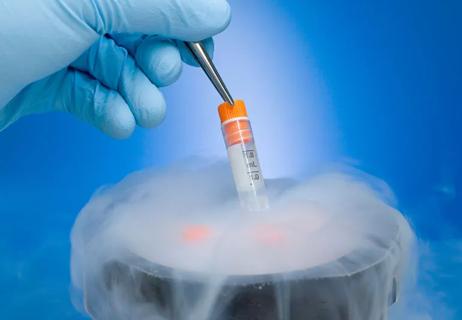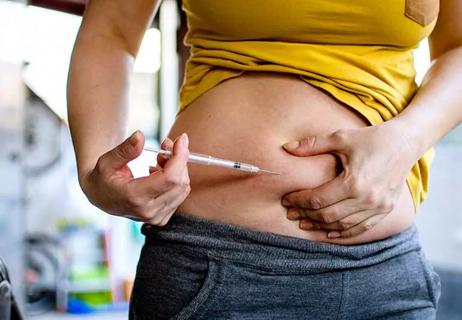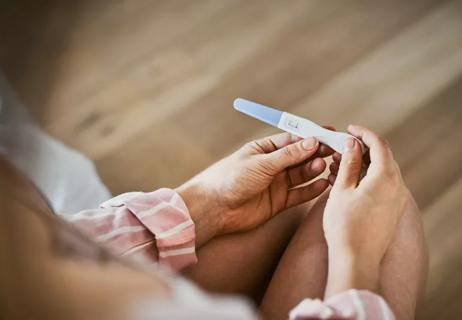Here’s a helpful starting point as your infertility journey begins

Getting pregnant isn’t always as easy as you might hope. For many couples, conceiving takes some extra work and medical intervention. That’s where intrauterine insemination (IUI) and in-vitro fertilization (IVF) come in.
Advertisement
Cleveland Clinic is a non-profit academic medical center. Advertising on our site helps support our mission. We do not endorse non-Cleveland Clinic products or services. Policy
IUI and IVF are two types of artificial fertility treatments to help you get pregnant when nature isn’t doing the trick on its own. During IUI, sperm is injected directly into your uterus. IVF is a multi-step reproductive technology that involves egg stimulation, retrieval, lab fertilization and transfer.
Infertility specialist Jenna Rehmer, MD, talks about each of these treatments, including what they entail, who they’re right for and how to decide where to start.
If you’re struggling to get pregnant naturally, your fertility specialist may suggest IUI or IVF. You may also turn to these processes if you’re trying to get pregnant using donor sperm, like if you’re in a same-sex couple or want to become a single parent by choice.
Dr. Rehmer breaks down the differences between the two processes.
During intrauterine insemination, sperm is placed directly into your uterus, which reduces the distance sperm has to travel and gives it a better chance of reaching your eggs.
“For IUI, a semen sample is washed to separate sperm from the seminal fluid and then the entire sperm sample is injected directly into the uterus,” Dr. Rehmer explains. “This significantly increases the number of sperm in the uterus over traditional intercourse.”
Advertisement
This simple, in-office procedure is done the day after an ovulation surge and typically takes just five to 10 minutes to do. Your doctor will use a speculum to locate your cervix and then insert a thin catheter (tube) into your uterus, using it to inject the sperm sample.
IUI is sometimes combined with ovulation induction, where you take medication to stimulate the development and release of eggs. This can increase the likelihood of conception in some.
In-vitro fertilization involves a few more steps. Normally, your ovaries produce just one follicle each month, but during IVF, you take a high dose of injectable hormones in an effort to produce multiple follicles.
“The goal is to produce 10 to 15 follicles, which contain eggs,” Dr. Rehmer says. “Some women make more and some less, depending on age, medical history and factors like ovarian reserve.”
Once those eggs mature, a doctor retrieves them through your vagina during a 10-minute outpatient surgical procedure called oocyte retrieval. The eggs then go to a lab to be combined with partner or donor sperm, and those that result in embryos are either transferred into your uterus or frozen for future use.
“IUI and IVF each have unique roles in treating infertility,” Dr. Rehmer says. She explains how to get started with the help of your doctor, who can weigh in on the next steps in your fertility journey and where you should start.
Your doctor will start by checking for causes of infertility, including (but not limited to) irregular ovulation, abnormal sperm, blocked fallopian tubes and endometriosis. They’ll also consider your age, known health conditions, personal health history and family health history to make recommendations customized to your needs.
“This is an individualized process, where, coupled with our recommendations, the patient’s voice and desires play a huge role in how we proceed,” Dr. Rehmer says.
Your doctor is likely to suggest IUI if you have unexplained infertility (meaning they can’t identify a cause) or your partner has mild male-factor infertility.
IUI is less expensive than IVF, and is also a less invasive procedure, which is why it’s often recommended as the first step.
If you go through three or four unsuccessful rounds of IUI, your doctor will likely suggest moving to IVF.
And in some cases, your doctor may recommend skipping IUI and heading straight to IVF if you (or your partner) have a condition like:
“Age and desire for family size also play a role in counseling toward IUI first versus straight to IVF,” Dr. Rehmer notes.
Advertisement
Remember, going through infertility treatments isn’t a guarantee of a baby. But it does increase your chances of getting pregnant.
And while IVF technically has a higher success rate than IUI, it’s not quite as simple as that. Your success rate depends on the specifics of your body, so it’s not always helpful to rely on raw data and percentages.
With each monthly attempt, the individual success rate for IUI is 15% to 20%. Doctors recommend attempting three to four rounds of IUI, which has a cumulative success rate of 40% to 50%.
“In the general population, the average pregnancy rate per month is only 1 in 5 couples, or 20% per month,” Dr. Rehmer says. “With IUI, we do our best to get the same success rates, but many still need to proceed to IVF.”
IVF success rates are dependent on factors like your age, ovarian reserve, reason for infertility, prior successful pregnancies, etc.
“Overall, most patients can expect around 50% to 75% success with a single round of IVF,” Dr. Rehmer says. “When individual success rates are lower, patients may require two or three rounds of IVF before they have a successful pregnancy.”
There are times when neither IUI nor IVF works. In this case, you may want to consider donor egg IVF (sometimes referred to as DE IVF in infertility support communities).
Advertisement
“If IVF is considered failed and another attempt is not recommended, many patients will turn to donor egg IVF,” Dr. Rehmer says. “This is when a donor undergoes IVF on the patient’s behalf. The donor’s eggs are collected and donated to the patient to create embryos using partner or donor sperm, then the embryos are transferred into the patient’s uterus to carry and birth the pregnancy.”
If you’re just starting your infertility treatments, though, it’s important to recognize that IUI and IVF may not result in pregnancy the first time around. You may need multiple rounds of either or both treatments in order to get pregnant.
“Know that it is a journey that can take many months, even years, to result in a successful pregnancy,” adds Dr. Rehmer.
If you’re feeling the stress and sadness of infertility, you’re not alone. Talk to your doctor about connecting with a therapist or a support group to help you cope throughout the process and beyond.
Advertisement
Learn more about our editorial process.
Advertisement

These consumer-friendly devices can’t assess male fertility nearly as well as a fertility specialist can

Oocyte cryopreservation is a proven way to extend your fertility options for the future

These step-by-step instructions will help you perform self-injections like a pro

Various prescription medications and recreational drugs can have an impact

Common causes and when to seek help

Some couples should see a doctor sooner than others

When you’re living with this chronic condition, early diagnosis and treatment can improve your chances of getting pregnant down the road

These over-the-counter kits are 99% effective at identifying when you’re most fertile each month

Wearing a scarf, adjusting your outdoor activities and following your asthma treatment plan can help limit breathing problems

Your diet in the weeks, days and hours ahead of your race can power you to the finish line

When someone guilt trips you, they’re using emotionally manipulative behavior to try to get you to act a certain way